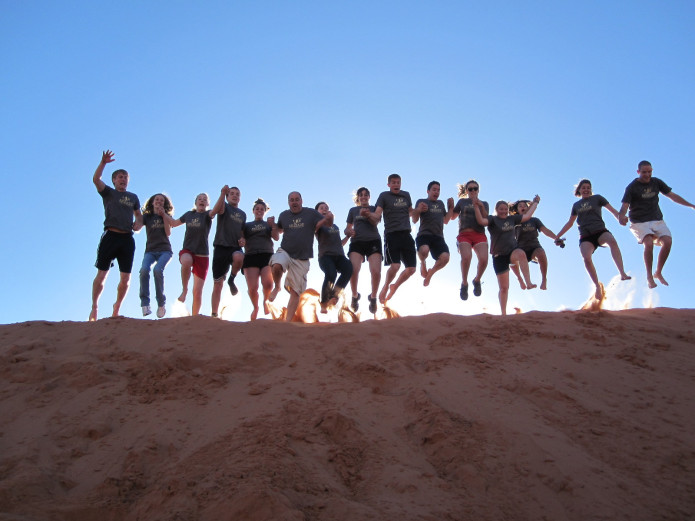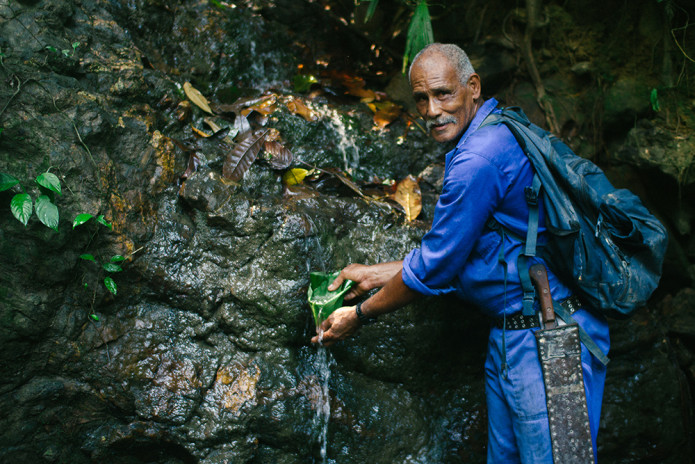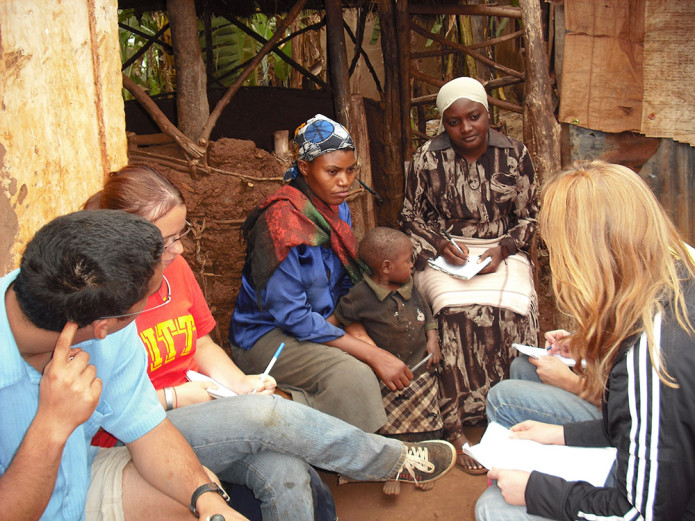It’s a familiar scene. Teenagers playing ice-breaking games in a non-descript meeting space. Like most young people meeting each other for the first time, the kids are self-conscious at first. Soon they start loosening up. Some flap their arms like giant birds and move about the room. Others hunch over like large beasts. Dinosaurs maybe.
The differences between these teenagers are easy to see. Some are African-American, some are white. But the similarities aren’t so obvious.
The African-American kids live in Pittsburgh’s predominantly black Hill District. The white kids are visiting from Belfast, Northern Ireland, where generations of religious and political strife have created an atmosphere of discrimination, injustice and economic inequality. Everyone in this room knows what it’s like to live in a divided society.
They have been brought together by Amizade Global Service-Learning, the 21-year-old Pittsburgh-based organization that combines opportunities for service and learning for young people through exchange programs in the United States and 12 countries around the world.
Over the course of several days, the Hill District program has the kids working together to build a community playground and participating in their own story-telling project, with related activities in Washington, D.C., and Morgantown, W.Va. It’s part of a partnership between Amizade and the Education Authority, Northern Ireland’s education governing body.
This program is a great example of what Amizade does – connecting people from different countries and different backgrounds as a way of educating and benefiting everyone on both sides of the arrangement.
“Part of our fair trade learning initiatives are that we want to ensure as much reciprocity in our programming as possible,” says Brandon Blache-Cohen, Amizade’s Executive Director. “That means that we don’t only want to be taking American students and engaging them in Jamaica. We want to make sure that our friends in Jamaica have the same opportunity to explore, serve and learn in the United States, something that can change the course of someone’s life and offer a lot of professional development at the same time.”

“PART OF OUR FAIR TRADE LEARNING INITIATIVES ARE THAT WE WANT TO ENSURE AS MUCH RECIPROCITY IN OUR PROGRAMMING AS POSSIBLE”
Amizade means friendship in Portuguese, and it’s a name and a concept that reflect the organization’s roots in Brazil, where it started out in 1994 as a pioneer in the new concept of volunteer tourism – helping people looking for community service projects to do while they were on vacation.
That quickly evolved into another new field – global service learning. Think of it as study abroad for community development. Now Amizade collaborates with universities, high schools, and community organizations to carry out its mission of “empowering individuals and communities through worldwide service and learning.”
So far they have empowered more than 9,000 people. Projects range from working on clean water issues in Tanzania to life-changing educational initiatives in the Navajo Nation and Bolivia. Other programs happen in Trinidad, Ghana, Brazil, Puerto Rico, and Poland.
One story of a life-changing experience through working with Amizade comes from Lidiane Castro of Santarem, Brazil. She came to Pittsburgh in 2013 to study English and volunteer at the Food City Fellows program at the Children’s Museum of Pittsburgh, a summer community gardening program to help young people develop job skills, food awareness and healthy eating habits.
“The way I see the world is different now,” she says. “I learned that it doesn’t matter the place you are, you can always find a way to help people.”
The impact of Amizade projects is abundantly clear to community representatives. Celeta Hickman, founder of the Ujamaa Collective, a community-based organization that is one of Amizade’s partners in the Hill District.
“Most important to me is that young people here in the Hill learn to be good hosts, gracious hosts,” she says. “That creates a sense of power and dignity and self-respect about where you live, in spite of what you hear about the violence and the test scores and all that….You have just people in the everyday Hill that will welcome people and be gracious and have dignity and self-respect and pride in their community. At the same time you have people coming from other countries that share very similar values and have very similar experiences, some that are very sad and tragic and some that are filled with victory and glory and goodness.”
It was this sense of the importance of community and global engagement that inspired the people at Amizade to lead development of The Global Switchboard.
“There were a lot of organizations that were like-minded that had some sort of connection to international engagement, global education and the like, that were also invisible,” says Blache-Cohen. “And so the idea was born to share a building, to share a space, to share ideas, to form a coalition to start importing some of the great community development ideas we are all seeing around the world, and to start exporting the great ideas that Pittsburghers have to the rest of the world.”



